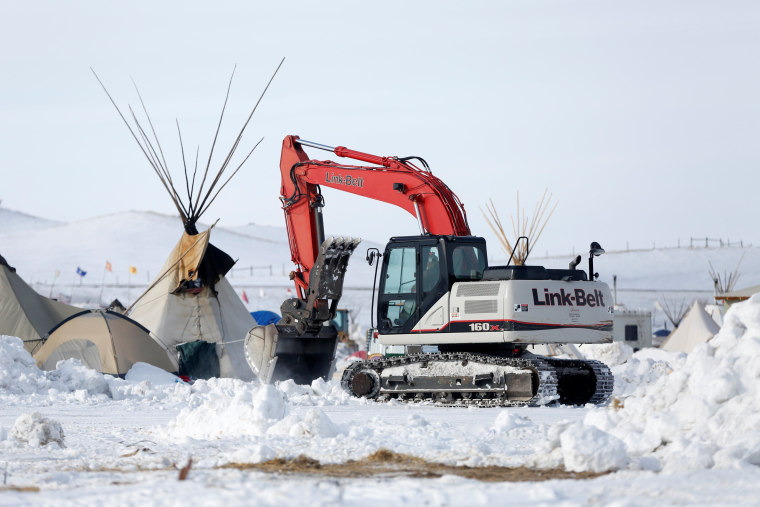A federal judge denied an emergency bid Monday to temporarily halt construction of the Dakota Access Pipeline, court documents show.
The temporary restraining order, which was sought on Thursday by Sioux Tribe members in U.S. District Court in Washington, D.C., claimed that the 1,172-mile pipeline could damage water used in sacred Lakota ceremonies, the documents say.
Judge James Boasberg said at a hearing that damage couldn't occur until oil was flowing through the 30-inch pipeline, The Associated Press reported.
Boasberg ordered the company behind the pipeline, Dakota Access, to provide weekly updates about when oil is expected to reach the 370,000-acre Oahe reservoir, whose shores are partly home to the two tribes that filed the emergency order — the Standing Rock and Cheyenne River Sioux tribes.

Last week, Cheyenne River Sioux Chairman Harold Frazier described water from the Missouri River, which flows through the reservoir, as a "central element of our Lakota spiritual beliefs."
"That water is our life," he said in a statement. "It must be protected at all costs."
Lawyers for Dakota Access filed documents Monday calling the tribes' religious claims "exceedingly tardy" and saying the harm cited by the tribes didn't meet the standards of a restraining order.
A hearing on another effort to block the pipeline is scheduled for Feb. 27.
Related: Dakota Access Pipeline: What's Behind the Protests?
The denial came five days after Dakota Access announced that the U.S. Army Corps of Engineers had granted the company a roughly one-mile easement that runs beneath the Missouri River and will allow the project's completion.
In December, under President Barack Obama, the Army Corps denied the easement, saying an alternative route should be explored.
That decision came after months of protests from Sioux tribe members and others who called themselves "water protectors." The protests sometimes turned violent, and authorities were accused of using excessive force and trying to criminalize activism.
Pipeline supporters have consistently argued that it will provide jobs and money to local economies.